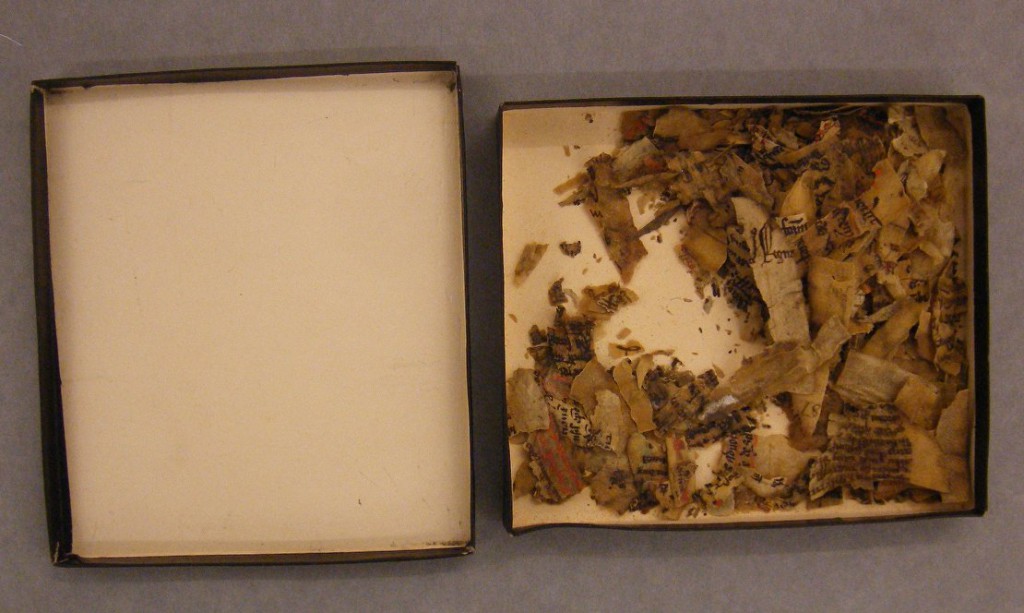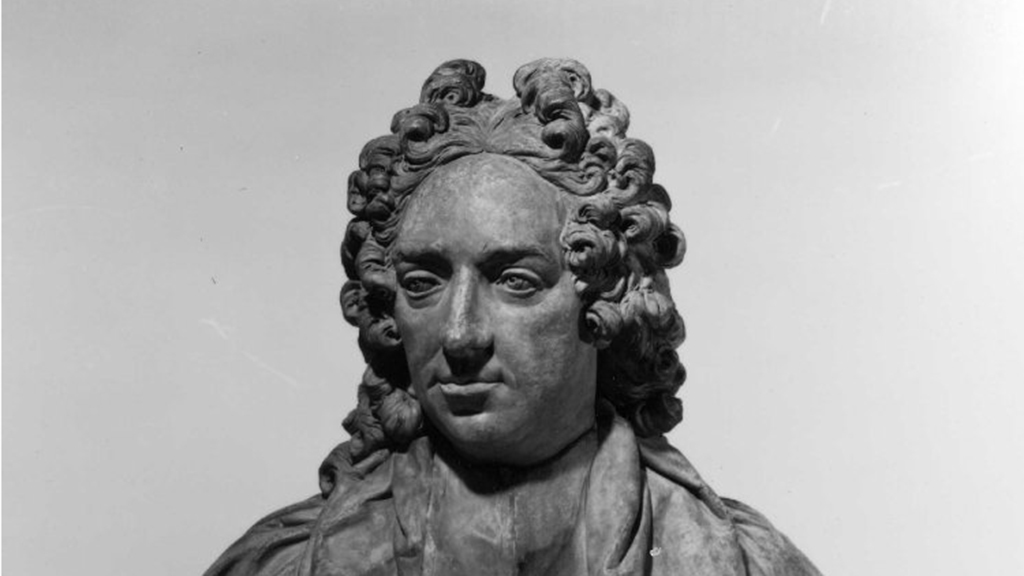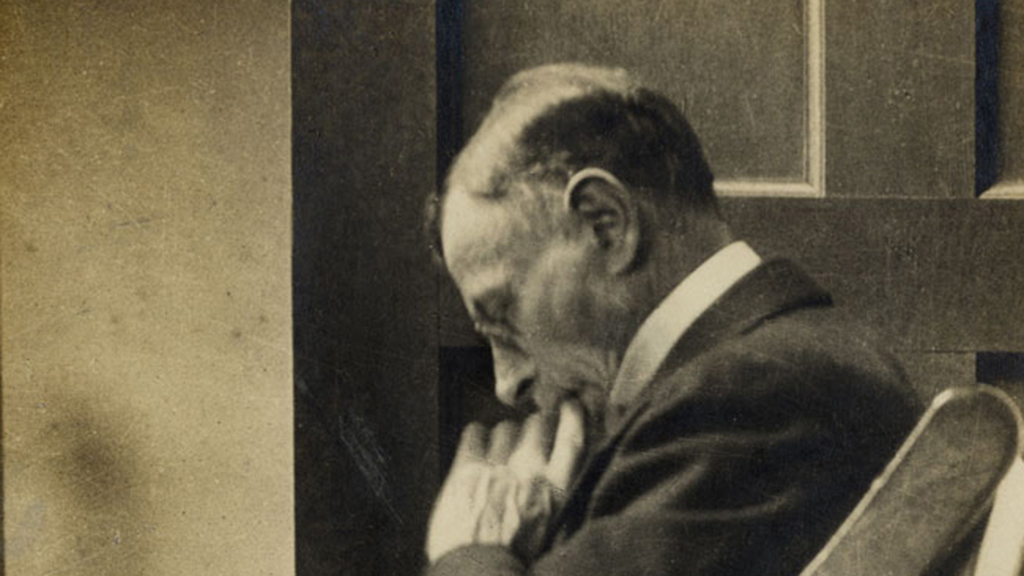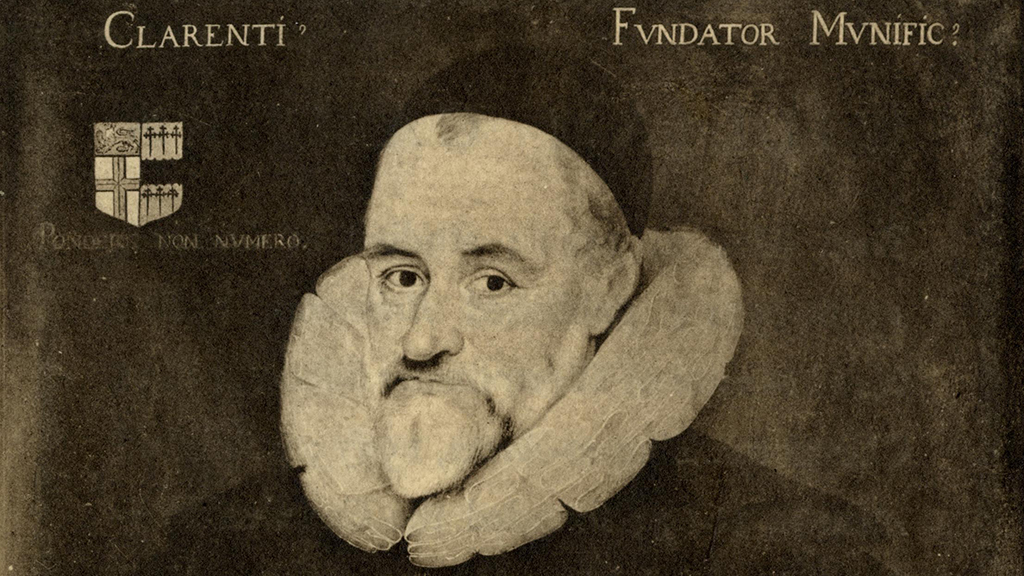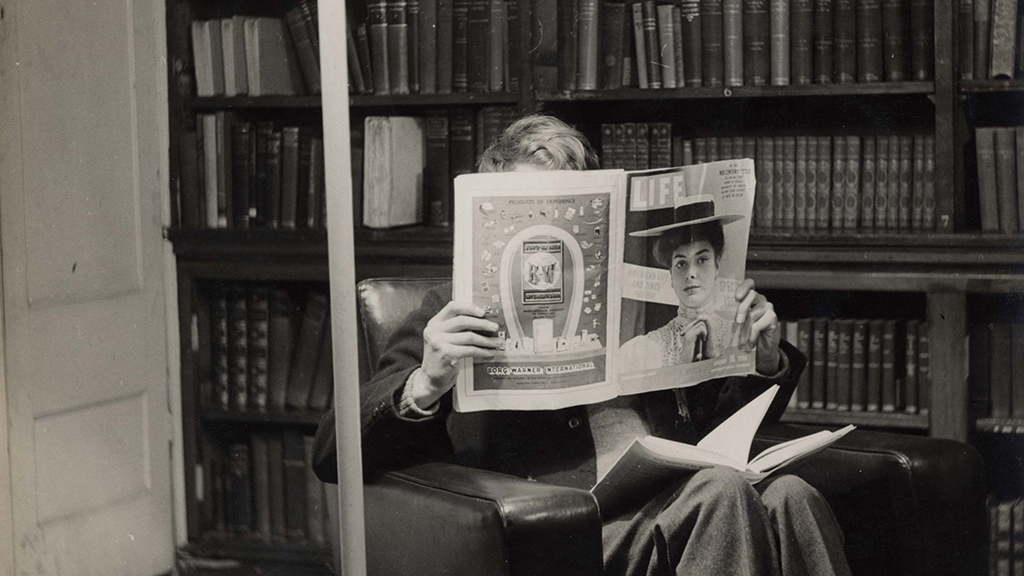In 1730, Lord Ashburnham leased Ashburnham House to the Crown to store the King’s and Cotton Libraries, as it was considered to be ‘much more safe from fire’ than their previous storage place in Essex House, The Strand, and with the books came Dr Bentley junior, who had taken on the role of King’s Librarian from his father; as luck would have it, on 23rd October 1731, there was a sizeable conflagration and the books were only saved by defenestration, and it is probable that the fire originated here in the east wing of the house. The Headmaster at the time, Dr Freind, saw the eminent Dr Bentley senior, rushing from the house in a nightgown and wig, carrying under his arm his precious Alexandrian Codex of the Scriptures. In fact, one of the four known copies of Magna Carta – the one now in the British Museum – bear marks from the fire.
Update: 16th May 2017 by Iskander Mathews
Although the account of Dr Bentley’s role in the fire detailed above is extremely popular, it appears that it may in fact be fictitious.1 Former School Archivist, Eddie Smith, notes in an article on the school’s buildings that “… as soon as the alarm was raised, the under-keeper of the Library, David Casely, made sure to remove the Alexandrian manuscript”, citing Oldys’ Literary Anecdotes of the Eighteenth Century. Oldys’ Anecdotes states that the story of Bentley and the Alexandrian Codex was first recorded in a letter from the Head Master at the time, Robert Freind, to an acquaintance of his, Lady Sundon. This letter has not been located.
By following up on the letter, one can observe that Dr. Bentley was lodging with Freind after the fire (“The Great Doctor [Bentley] took refuge in my house in his distress”) and therefore, the story might have first been told to Freind during this period (it is also thus quite probable that Friend never actually witnessed the events of the fire himself).
Matt Kuhns, a historian of the Cottonian Library, records in his work Cotton’s Library: The Many Perils of Preserving History, that a 1732 a report titled A Report from the Committee Appointed to View the Cottonian Library [a collection of books burnt in the fire] had no mention of Bentley’s supposed saving of the “Alexandrian Old Testament Manuscript”.
From these details, one can conclude that at the very least Bentley (or Freind) has spread a tale that greatly exaggerated his role in the saving of the Alexandrian Codex. It may even be possible that the story was entirely fabricated by Bentley in an attempt at self-justification, since he had fallen under criticism in the aftermath of the fire. It had started in his room at Ashburnham House and moreover many recounted that he had only considered saving his own works from the fire rather than retain other, more historically important documents, such as a copy of the Magna Carta.
P.S. The Cotton Library Fire inspired Westminster School Usher, Thomas Fitzgerald, to write a poem.
1. The story is recounted in Westminster School: Its Buildings & Their Associations by L. E. Tanner, Westminster School by John Carleton, the British Library’s Collection Care Blog (which adds the detail of Dr Bentley jumping from a window) and even a recent Westminster School information leaflet on Ashburnham House.
